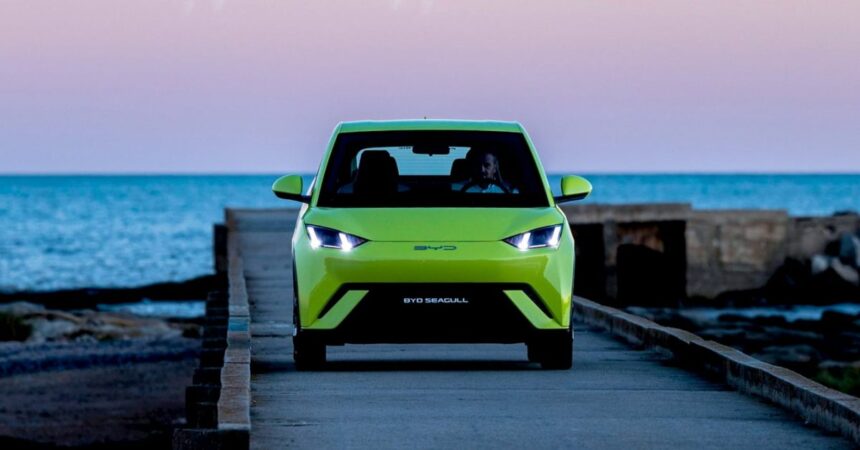Construction at BYD’s new EV plant in Brazil came to a sudden halt after authorities discovered Chinese workers in “slavery-like” conditions. The workers were hired in China by a contractor hired by BYD, which has since severed ties with the firm. Both BYD and the contractor claim that the term “slavery” was unjustly used, with some translations possibly being misunderstood.
According to the Public Ministry of Labor in Brazil, 163 workers at the construction site were found to be working in conditions analogous to slavery. Jinjiang Group, one of the contractors hired by BYD, recruited the workers in China. As a response to the findings, BYD has ended its relationship with Jinjiang and is assisting the victims in collaboration with Brazilian authorities. All workers will be relocated to hotels, unable to work, and their contracts will be terminated.
BYD’s senior vice president in Brazil, Alexandre Baldy, emphasized the company’s commitment to complying with Brazilian laws and protecting workers’ rights and human dignity. The conditions at the construction site were described as severe, with workers having limited access to basic facilities and facing exploitative practices such as being required to work long hours without proper compensation.
BYD conducted a thorough review of the situation and repeatedly urged Jinjiang to improve working conditions. A joint virtual hearing between the Public Ministry of Labor and the Ministry of Labor is scheduled, with the possibility of on-site inspections still on the table. Despite the setback, BYD’s new EV plant is on track to commence production next year.
In response to the allegations, Jinjiang Group denied the portrayal of its employees working in slavery-like conditions, suggesting that some translations may have been misinterpreted. The company issued an apology and expressed concern over the impact on the dignity of Chinese workers. BYD’s general manager of public relations echoed these sentiments, highlighting the need to address misinformation and defend Chinese brands against unwarranted criticism.
The Chinese embassy in Brazil is actively engaged in verifying the accusations, underscoring the importance of diplomatic efforts to address the situation. Despite the controversy, BYD remains a prominent player in the Brazilian EV market, with successful launches of popular models like the Shark PHEV and Dolphin Mini. Once operational, the Brazil plant is expected to have an annual production capacity of 150,000 vehicles, further solidifying BYD’s presence in the region.
Sources: Bloomberg, Brazil Public Ministry of Labor





